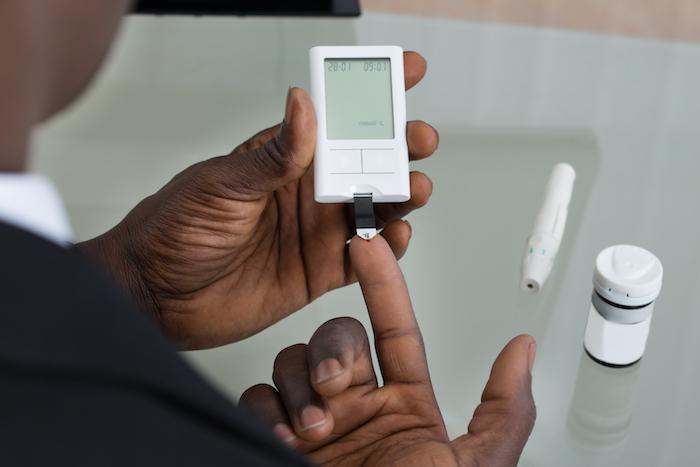Diabetes is a widespread health problem that can lead to potentially dangerous complications. While approximately 10% of Americans have diabetes, nearly a third have prediabetes and might not even know their health is at risk.
If you have concerns about diabetes or a recent diagnosis, there is good news. In many cases, you can manage your condition with diet and exercise. The supervision of an experienced physician is critical to protecting your health.
Our team of physicians here at Ally Endocrinology provides comprehensive, patient-focused care at three conveniently located offices in Troy, Michigan . We can help you manage your blood sugar levels, protect your health, and reduce your risk of dangerous complications.
Let’s start with a review of diabetes. Knowledge is power, especially when it comes to making the best decisions for your health.
About diabetes
Your body should use insulin to convert your glucose (blood sugar) into energy. Insulin is a hormone produced in your pancreas. However, if you have diabetes, your body either doesn’t make or use insulin correctly.
As a result, your glucose levels rise and can cause a wide range of symptoms and complications, ranging from increased hunger, thirst, and urination to blindness, neuropathy, and amputation.
The two most prevalent kinds of diabetes are Type 1 and Type 2. However, as mentioned, millions of Americans have prediabetes.
Prediabetes
Prediabetes is the precursor to Type 2 diabetes. It occurs when your blood sugar levels are higher than normal but lower than the diagnostic criteria for full-blown diabetes. While prediabetes means that your condition is progressing toward Type 2 diabetes, in many cases, you can make lifestyle changes to prevent this from happening.
Type 2 diabetes
Type 2 diabetes is the most common type of the disease, accounting for about 91% of diagnoses in the United States. In Type 2 diabetes, your body becomes insulin-resistant and doesn’t use the hormone correctly. Your pancreas works overtime to make enough of the hormone to regulate your blood sugar, but eventually, it’s not enough.
Type 1 diabetes
Type 1 diabetes occurs when an autoimmune disorder attacks the insulin-producing cells in your pancreas. This type of the disease usually emerges during childhood and is sometimes called juvenile diabetes, as it’s often diagnosed in childhood, but it can occur at any age.
Diabetes symptoms
It’s important to note that prediabetes and Type 2 diabetes don’t cause symptoms in their early stages. The best way to monitor your health is to have routine blood work during your annual physical.
Type 1 diabetes and advanced Type 2 diabetes can cause symptoms, including increased thirst, hunger, and urination, blurry vision, fatigue, dry skin, and slowly healing wounds.
How to manage your diabetes
Our team offers thorough and accurate diabetes testing, including fasting blood sugar tests and glucose tolerance tests. After we confirm your diagnosis, we work with you to create and implement a personalized treatment plan to control your condition.
People with Type 1 diabetes need to take insulin to provide the hormones their body needs. You also need to monitor blood sugar at home. If you have prediabetes or Type 2 diabetes, we can help you make lifestyle modifications to get your blood sugar under control. If adjusting your diet and adding exercise to your routine doesn’t regulate your blood sugar, you might need insulin and other medications to bring your glucose levels down.
For all types of diabetes, our team helps you implement the following lifestyle adjustments:
Glucose monitoring
Keeping an eye on your glucose levels is critical to monitoring your health when you have diabetes. Your provider explains what self-monitoring blood glucose device options you have to check your blood sugar levels. In most cases, you use a sterile lance to make a small prick in your skin, collect a tiny blood sample on a test strip, and use a meter to read the test strip.
Make sure your hands are clean before touching your meter or test strips and don’t use a test strip more than once. You should also take care to read your device’s instruction manual for full details on how to read your levels correctly.
Choose healthy food
Our team provides nutrition counseling to help you adhere to a healthy diet. You should avoid sugary foods, sweetened fruit juices, and drinking excessive amounts of alcohol. Instead, choose fresh foods, such as whole grains, vegetables, and lean proteins, to keep your glucose levels under control.
Exercise most days
The general recommendation is to get at least 30 minutes of exercise five days a week, although you might want to increase the length and intensity of your activity if you want to lose weight. Choose exercises that elevate your heart rate — try walking, swimming, or biking.
Weight loss can help your body use insulin more efficiently. We can help you lose weight with a tailored nutrition and activity plan.
You can lead a healthy, active, and fulfilling life with diabetes. If you have concerns or a recent diabetes diagnosis, call our office or use the online booking tool to request a consultation today.



